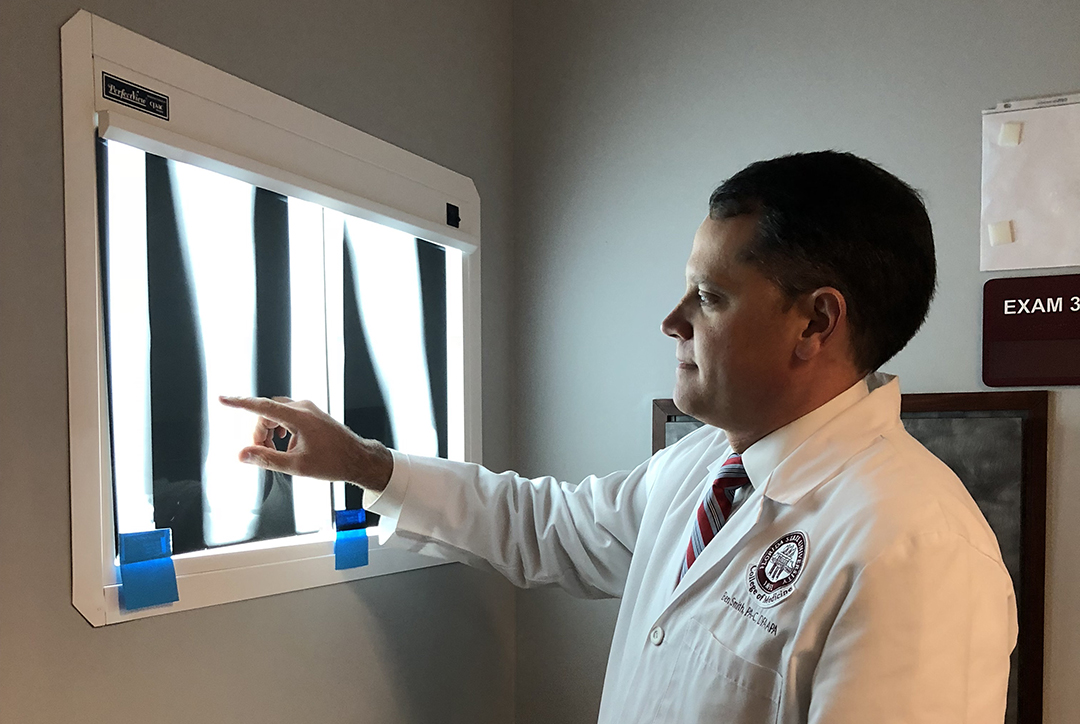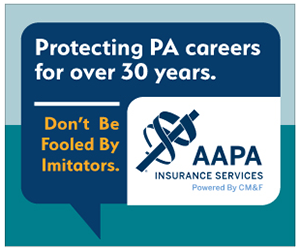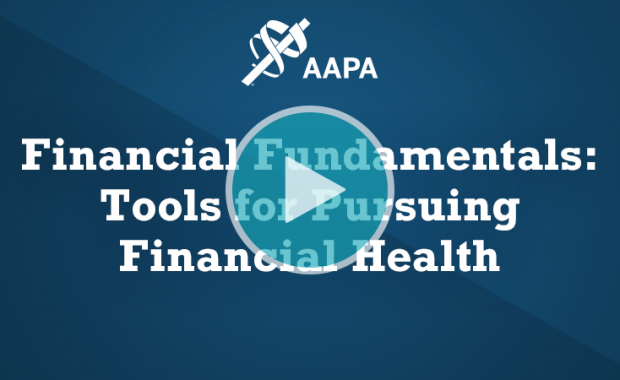Career Resources
USPHS SRCOSTEP: Why Every Student Needs to Know This Alphabet Soup
Learn about the U.S. Public Health Service Commissioned Corps, one of the eight uniformed services. Then hear from a recent student and officer’s experiences in the Senior Commissioned Officer Student Training and Extern Program (SRCOSTEP). Finally, learn how to apply for this elite paid internship for graduate students!

Could Rheumatology Be the Right Specialty for You?
The rheumatology specialty faces personnel shortages that may worsen as the population ages while rheumatologists retire. That’s why AAPA is offering new Rheumatic Learning curriculum which delivers a patient-case based simulated experience.

A Day in the Life of a PA in Ophthalmology
Joel Ciolek, MSPA, PA-C, is one of 80 PAs practicing in ophthalmology. He enjoys looking into someone’s eyes for a living and preserving and restoring vision. He describes a typical day doing comprehensive, medical retina, and vitreoretinal surgery.

Fact-Checked: Myths About Malpractice Insurance
AAPA has partnered with CM&F for more than 20 years to provide trusted insurance protection for PAs’ assets and careers. To help you understand the complexities of malpractice insurance, they debunk five of the most common myths they hear from PAs.

What PAs Need to Know About Malpractice Insurance
All clinically practicing PAs should carry professional liability coverage, often called malpractice insurance, during all time periods in which they practice. But the ins and outs of malpractice insurance can be confusing, so we have the official answers to nine of your most frequently asked questions.

Insider Tips on Popular PA Specialties
PAs know that career flexibility is a built-in benefit of the profession. But it can be overwhelming to think about transitioning specialties. Do you have enough experience? What’s the best way to get your foot in the door? Four experts share their insights.

AOP Guide
Explore a new career direction or specialty with this collection of AAPA and partner resources, salary data, and CME on various practice areas, including Administration, Dermatology, Education, Emergency Medicine, Family Medicine, Hospital Medicine, Internal Medicine, Orthopaedic Surgery, Telemedicine, and Urgent Care.

PA Educator Shares the Science Behind Memory
PA school is all about memory. So what is the science behind memory, and why do some memory strategies work better than others? Kristopher Maday, MS, PA-C, DFAAPA, shares a three-tiered, information processing model to memory, and how PA students can use it to their benefit.

ACHE/AAPA Leadership Learning Collaborative
The online ACHE/AAPA Leadership Learning Collaborative offers 20 of the 36 credits needed to complete the prestigious FACHE credentialing.

Study Less, Remember More
By focusing on the finish line from the very start, developing strong personalized study skills, and maintaining a willingness to adapt, students will learn how to feel confident on test day through both didactic and clinical years.
PA Practice Resources
It is important to understand training, competencies, and the scope of practice of PAs. Knowledge of PA practice can optimize patient care while maintaining compliance with Federal laws and regulations. It’s a ‘win’ for PAs, employers, and patients.

Rachael Jarman Shares 5 Tips for Unemployed PAs
PA Rachael Jarman acknowledges she is not the first PA to go through unemployment and offers a few tips that help her keep a stable mental state. If we take steps towards staying healthy, she says, circumstances feel less dire.

Q&A with PA Leader Clair Kuriakose
Clair Kuriakose, MBA, PA-C, is a high achiever. She sets goals for herself, achieves them, and then strategically lays out her next steps. She finished PA school, got her MBA and Lean Six Sigma certification, and now leads advanced practice providers at Stanford Health Care.

Financial Fundamentals: Tools for Pursuing Financial Health
In this one-hour webinar, learn what it takes to get into PA school and how to make yourself a more competitive applicant.

